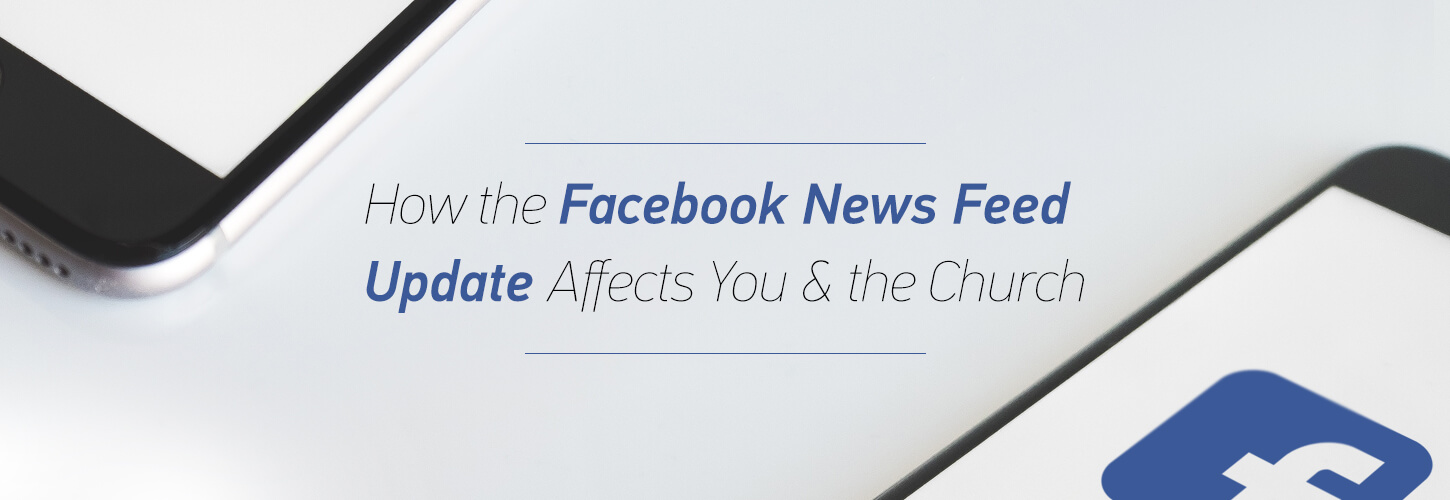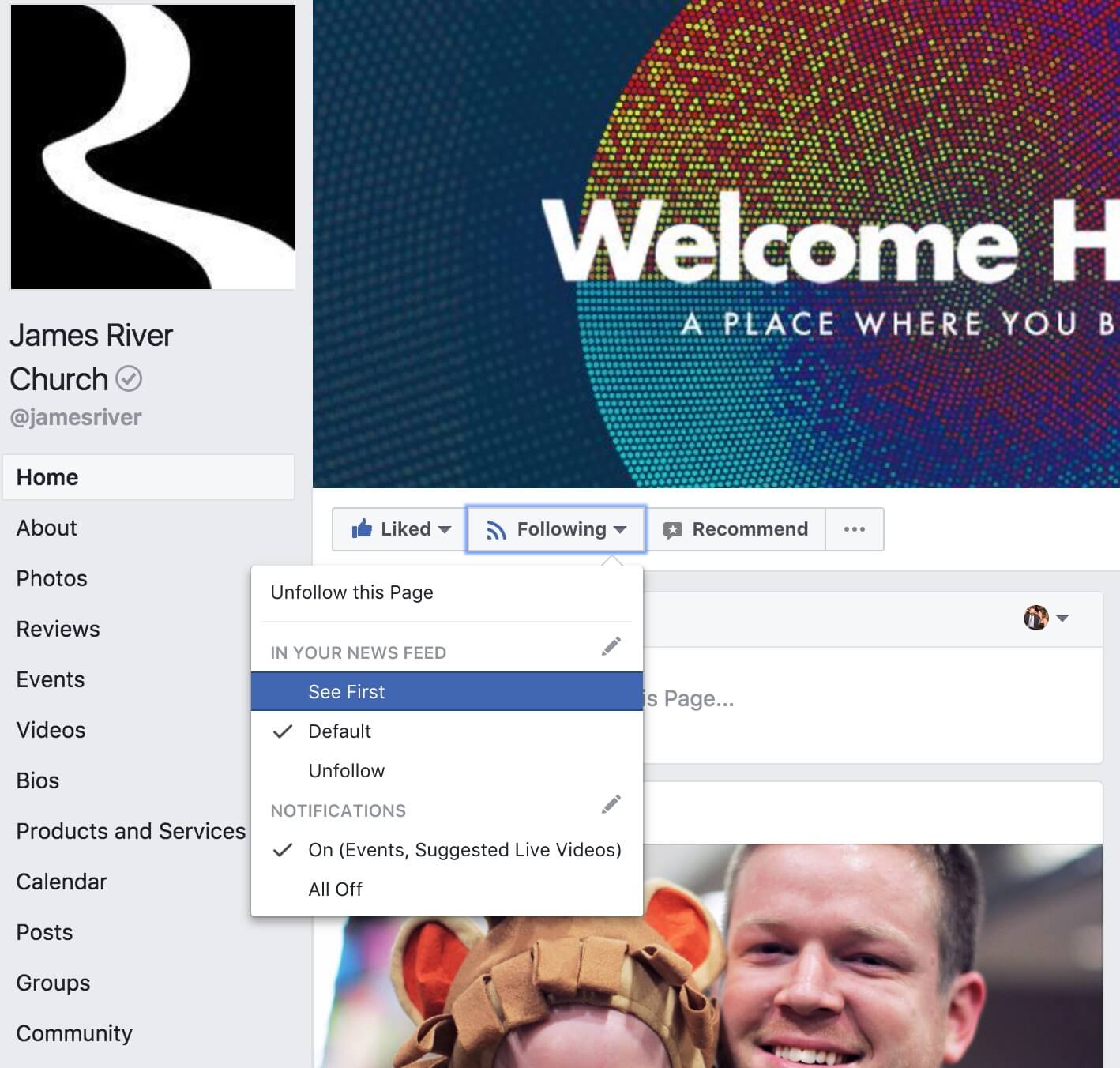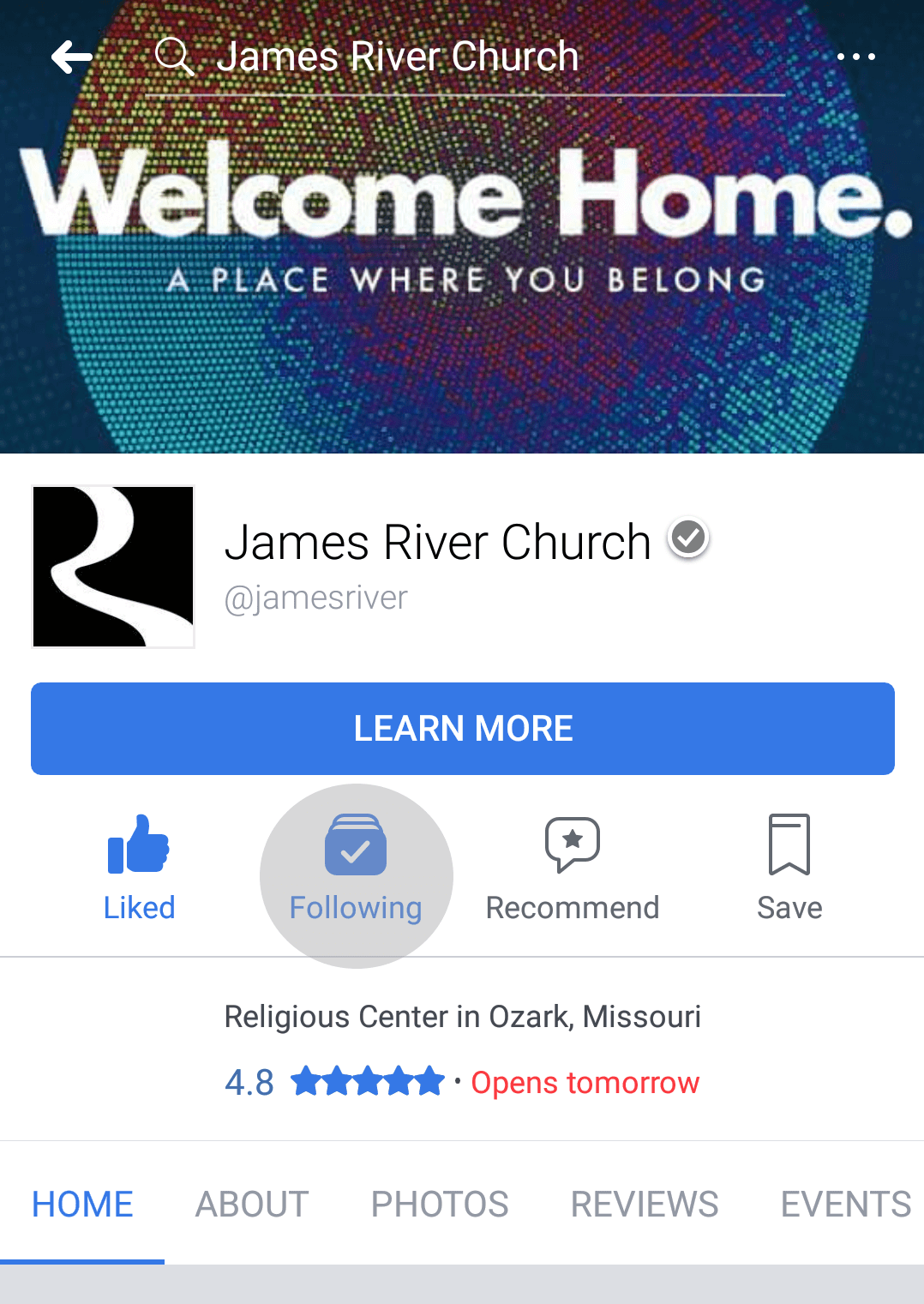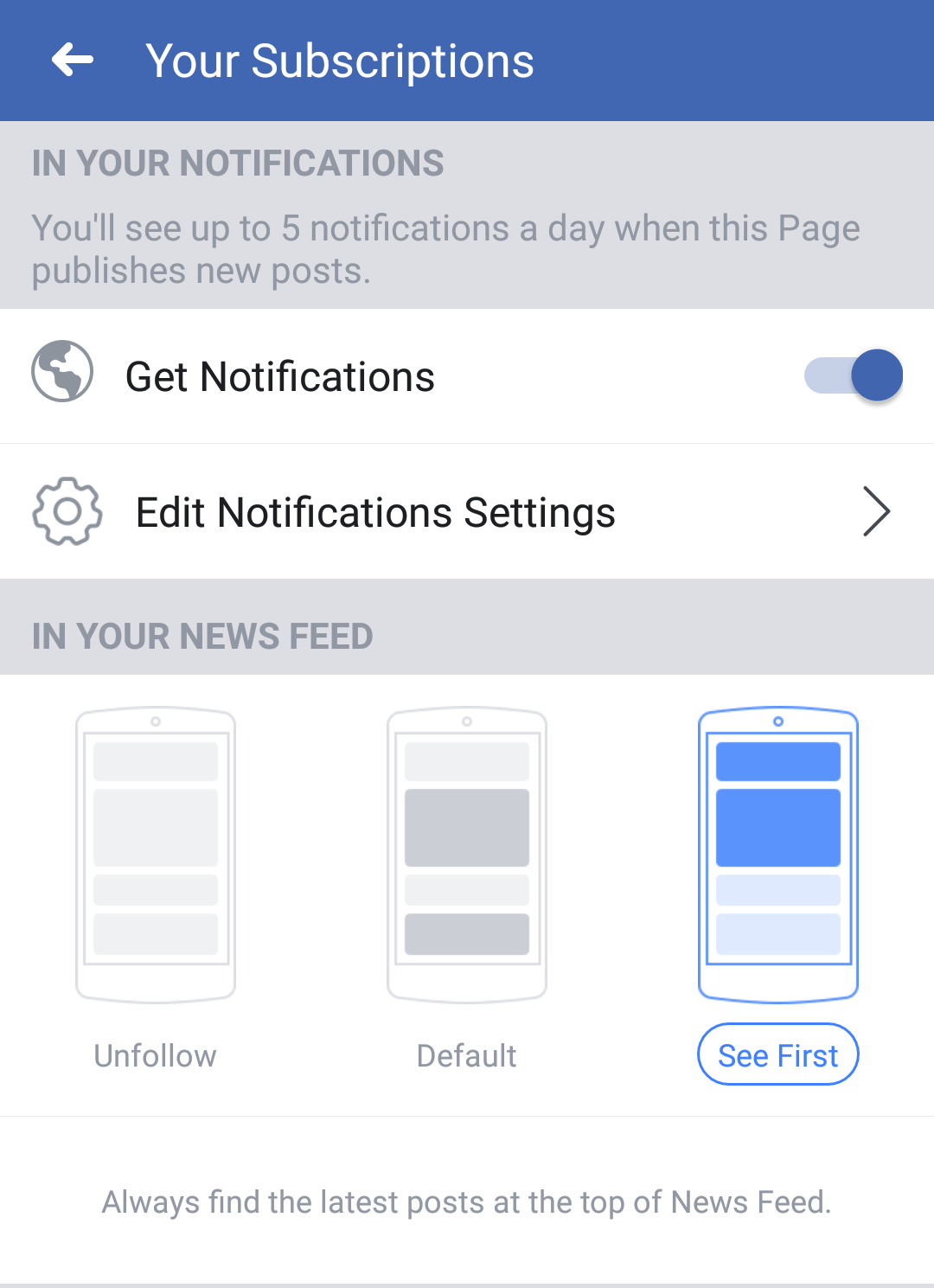
Stronger Men’s Conference
Empowering men to be better husbands, fathers and leaders April 24-25, 2020. Register Today!
In case you didn’t know, Facebook just released major changes to its news feed algorithm. According to Inc.com, Facebook recently announced the “end of the news feed as we know it.” Several social media marketing experts claim this to be the downfall of Facebook, or “Facebook Armageddon.” Mr. Facebook himself, Mark Zuckerberg, announced the new changes with a personal Facebook post stating:
“…recently we’ve gotten feedback from our community that public content — posts from businesses, brands and media — is crowding out the personal moments that lead us to connect more with each other…. [I’m changing] our product teams from focusing on helping you find relevant content to helping you have more meaningful social interactions.”
So, what are the changes?
On Facebook, individuals have profiles and organizations have pages. Facebook is giving profile, or individual, interactions a higher weight in evaluating how high (if at all) content appears in your Facebook news feed. Seeing as how churches fall into the “organizations category” this could mean a significant dip in Facebook visibility for churches and other organizations if they don’t adapt. Essentially, organic visibility for posts from churches and organizations is now zero. Organic visibility is the posts’ ability to naturally appear on news feeds without any type of external or commercial influence.
How will these changes affect churches?
If your church has a Facebook page, your followers won’t necessarily see posts from the church just because they have liked or are following your page. Content that is posted by their friends, groups they are a part of, or posts that their friends are engaging with will now naturally rank higher than any post from an organization.
Is this the end of Facebook for organizations and churches? No, not necessarily. Facebook has grown to be a staple in many churches’ marketing strategies over the years, so what can the Church do to continue to utilize Facebook effectively in this new age of the “organization-free” news feed? An organization’s reach on Facebook will definitely take a hit, but there are some things that you can do to minimize the impact and still utilize Facebook.
4 Ways Your Church Can Still Reach People on Facebook
1. Educate Your Followers
Your current Facebook followers have followed you for a reason and obviously want to continue to see content you produce (otherwise they would have unfollowed you). So, you need to educate them on some simple steps they can take to ensure your posts appear in their news feed. With the update, Facebook users now have a new “visibility” option when choosing who or what they follow. You can now assign profiles and pages to a “See First” status regarding where their posts will appear in your news feed. Letting your followers know about this new feature will allow them to assign your church’s page to the “See First” status to ensure they continue to see your posts in their news feed.
Desktop

Mobile


Also, encourage your followers to engage with your posts. As a Christian, I want to do whatever I can to promote the church, gain awareness, and reach new people. Letting people know the importance and impact their engagement now has on the church’s Facebook content will encourage them to help out.
2. Post Engaging Content
Posting content that promotes engagement from your followers will ensure that your posts generate the buzz needed to rank higher in news feeds. Honestly, post engagement should be one of the main focuses churches have when deciding what content to post. We need to engage the public on a meaningful basis to build relationships, meet needs, connect people with the Church and other Christians, and ultimately lead them to a relationship with Christ. Also, consider what type of content people will want to share, as this will boost the engagement and visibility of your post. Here are some ideas for content that would promote engagement:
- Sunday sermon quote snippets
- Upcoming events
- Blogs
- Polls/surveys
- Asking questions regarding a topic or sermon
- Available resources such as classes, counseling, childcare, small groups, etc…
One big caveat here is that Facebook will actually degrade your post if you include any type of specific “engagement-bait” style verbiage. Such as:
- “Comment below with your name and email for…”
- “Share this post to get a…”
- “Like our post to be entered into a drawing for…”
Facebook’s stance is that if you’re posting good content, you won’t have to ask your followers to engage with it. A better approach would be to ask a question or encourage people to tell you about their experience concerning the post’s topic. This will spur meaningful and genuine engagement with your followers, which is what the new Facebook algorithm is looking for. Long-form comments are one of the best indications of meaningful content and will be the best way to get your post higher in the news feed. The like button carries very little weight, so meaningful engagement is key!
3. Go Live
Facebook Live should be a regular and consistent way of engaging with your Facebook community. Live posts are ranked higher in news feeds and also naturally promote engagement. Going live can be as easy or high-tech as you want, or are able to make it. As long as you have a smartphone, and preferably a good internet connection, you can go live on Facebook. Facebook also has a Live API connection that can receive a signal from media encoding software if your church produces or records live sermons. Be sure to engage with your audience by asking questions and responding to incoming comments. Once your live post is completed, Facebook will automatically create a video and save it to your profile’s video library where you can continue to share, engage, and promote it afterward.
4. Pay to Play
In general, marketing budgets have been trending from traditional marketing methods, such as billboards, radio, and TV ads, to digital mediums, like Facebook ads. For churches, it is going to take a little more spending to keep up with the reach and engagement statistics of last year. However, Facebook is still a very effective and useful method for reaching new audiences and promoting the church even with the latest changes. One of the most powerful tools that paid promotion on Facebook includes is audience targeting. When advertising on Facebook, you are able to define audiences by geography, demographics, interests, level of digital engagement with your organization, and other endless custom audience options.
There are two main ways to use paid promotion on Facebook:
- Boosting – this method takes regular posts that you have already created and “boosts” their reach with paid promotion. As a general rule when selecting your budget and target audience for boosted posts, you should use a larger budget for a bigger audience, and vice-a-versa. The minimum spend is $1 per day for boosted posts. A good starting point would be to take a post that is similar to a previous one, boost it for $1 a day for seven days, and then compare the reach and engagement metrics to see how much better the boosted post performed compared to the non-boosted post. From there, you can gauge what type of increase to expect with your “boost budget”.
- Facebook Ads – this option is more complex and could run the risk of wasting budget if not set up properly. However, it also has more powerful tools, better analytics, and can be a more effective paid promotion compared to boosting existing posts. Facebook provides extensive instructions and information regarding paid ads, which I strongly urge you to read before setting up your first campaign (Facebook Ads Center and Knowledge Base). When used properly, Facebook ads can be a very effective option for promoting the local church and spreading the Gospel.
Facebook is still a viable way for churches to reach new people, the methods and rules have just shifted a bit. Ensuring that you are posting quality content that people want to interact and engage with is the new standard, which isn’t necessarily a bad thing. Hopefully, you’ve gained some insight as to how the latest Facebook update affects you and the Church, as well as some tips to ensure your church can continue to make an impact through Facebook. Don’t be afraid to change up your marketing strategy in an effort to reach more people for Christ! “What I whisper in your ear, shout from the housetops for all to hear!” – Matthew 10:27 (NLT)
